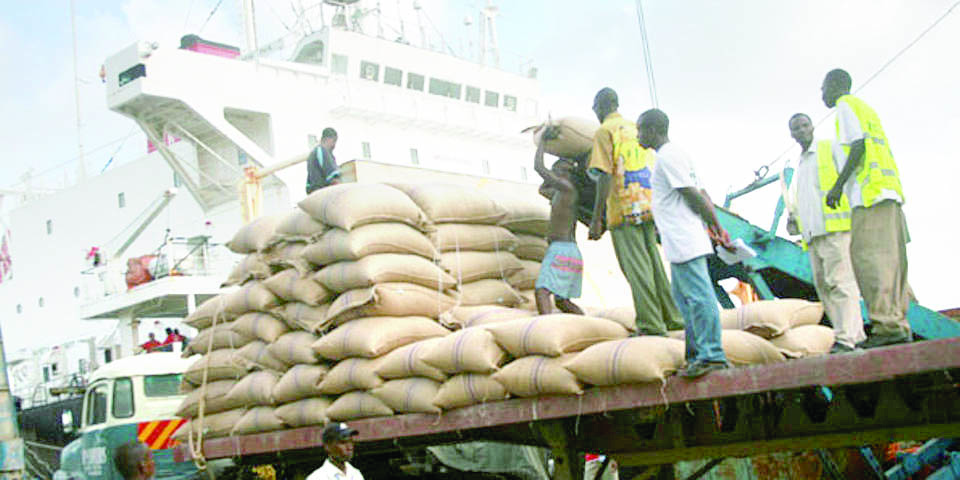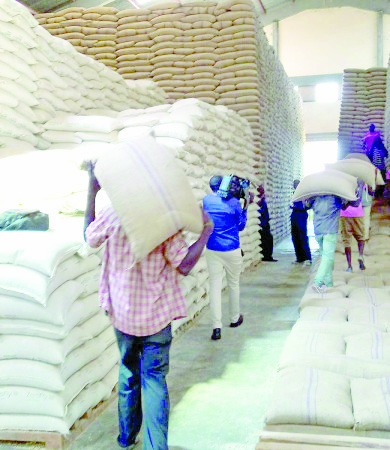Government allows duty free maize and rice import in 2023

The Ministry of Agriculture and Livestock Development has taken over the importation of duty free maize and milled rice from the Ministry of Trade and Industry that was initially engaged with the matter and even went ahead to issue tough guidelines to importers.
In a notice issued yesterday, the Agriculture ministry headed by Mithika Linturi noted the import duty waiver will be granted to millers and importers to import 900,000 metric tons of white grain and 600,000 metric tons of rice from February to August next year to enable the country have adequate stocks to last until the next harvest from July – August 2023.
The ministry said the duty waiver shall apply to white maize and milled rice imported in the county by August 6, 2023, by millers and traders.
“It is notified for the general information of the public that pursuant to section 114 (2) of the East African Community Customs Management act 2004, read with provisions of items 20 Part B of the Fifth Schedule to the Act and in consequence of the notification of an impending food crisis in the country by the ministry of agriculture and livestock development an import Duty waiver will be granted for millers and traders to import a total of 900,000 metric tons of while maize grain and 600,000 metric tons of milled rice from February 2023 to August 2023,” reads the notice.
Importation of GMO Maize
The ministry’s decision to take over the importation process comes after Linturi distanced himself from the importation of GMO maize following an announcement by his Trade counterpart Moses Kuria who had threatened that the government would allow importation of 10 million bags of duty free maize.
“GMO and non-GMO maize will be imported in the next six months,” Kuria said.
Linturi, who had remained mum as the debate on maize importation raged, came out to state he was not aware of any plans to ship into the country genetically modified maize.
“I am the custodian of the ministry and am not ready to answer to what is being reported in social media,” he said during a press briefing in his office.
Linturi’s clarification on the issue came after Prime Cabinet Secretary Musalia Mudavadi said the order to import maize should have originated from the Ministry of Agriculture and not the Trade docket.
“This issue of importation of maize should be guided by a survey from the Ministry of Agriculture which will find out if there is a deficit of grain. That is a policy that must be well elected. It is the Agriculture docket that will issue an importation order after looking at the food situation,” Mudavadi said.
Assorted food products
During Jamhuri Day celebrations at Nyayo National Stadium, President William Ruto said the government would import 10 million bags of assorted food products including maize beginning next year.
And yesterday, the Principal Secretary in charge of Crop Development revealed they shall allow white imported maize while in the case imported milled rice it should be Grade One.
On imported white maize, the ministry has given five conditions which should be met including ensuring that moisture content does not exceed 13.5 percent as provided under the laws of Kenya, aflatoxin levels should not exceed 10 parts per billion as provided for, the maize shall be accompanied by a certificate of conformity issued by the Kenya Bureau of standards and it should be imported by August 6, 2023.
As for imported rice, it should be the dried mature grains of edible Oryza SPP, should be clean, wholesome, be uniform in size colour and shape, should be safe and suitable for human consumption, should be free from abnormal flavours, musty , sour or other undesirable odor, obnoxious small and discolorations, should be free from microorganisms and substances originating from micro organisms fungi or other poisonous substances.
In addition, the milled rice which should be imported by August 6 should have additional requirements such as broken particle five percent, heat damage one percent, damaged rice 1.5 percent moisture content 13 percent, other contrasting varieties 1 percent, paddy grains, 0.3 percent and Chalkya 2 percent.
Last year, Kenya banned the importation of maize from two neighbouring countries including Tanzania and Uganda
In a letter by the acting Director-General of the Agriculture and Food Authority, Kello Harsama to Pamela Ahago, the Commissioner of Customs in the Kenya Revenue Authority, the imports should stop after a survey conducted indicated maize from the two countries is not fit for human consumption.













